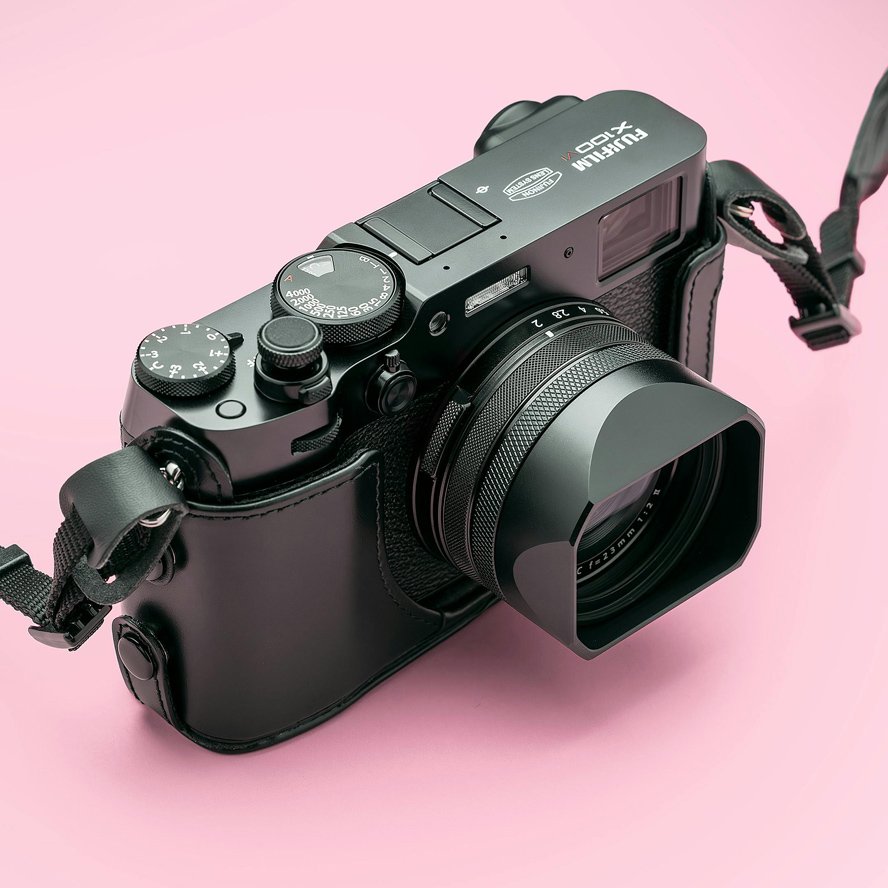The Introduction of the iPhone 13 and 13 mini
Some exciting news from Apple! The trendsetting company has announced the debut of the iPhone 13 and 13 mini!
They're taking preorders for the September 24 (2021) release. As is often the case when they introduce a new product or iPhone model, you can expect to see some new exciting and innovative features.
New Features
The 13 and 13 mini tout some new features, including what the company says is its most advanced dual-camera system ever for an iPhone. Apple has redesigned the iPhone's architecture and turned the lenses 45 degrees to fit in the dual-camera system, with an Ultra-Wide camera sensor (also its fastest to date).
To quote Apple:
"Our most advanced dual‑camera system ever."
"Durability that's front and center. And edge to edge."
"A lightning-fast chip that leaves the competition behind."
"A huge leap in battery life you'll notice every day."
The new Ultra-Wide camera system allows for bigger pixels (1.7 µm pixels) and sensor-shift optical image stabilization (OIS); both promises to improve low-light photos and videos. (The sensor-shift stabilization was originally introduced in the iPhone 12 Pro Max.)
The new camera has the biggest sensor ever put in an iPhone dual-camera system. It can gather 47-percent, allowing for more light, less noise, and brighter results.
Thanks to the A15 Bionic chip, more efficient components, a larger battery, and power optimizations from a deep integration of hardware and software, you can expect a lot from the camera. Another piece of great news: you can expect significant battery life improvements!
Apple says that innovations improve both performance and efficiency in the new chip thanks to a new 6-core GPU, with two high-performance cores and four high-efficiency cores.
The new phones' display has been upgraded to an improved Super Retina XDR OLED. According to Apple, the improvement will deliver authentic black and a 28-percent increase in max outdoor brightness at 800 nits. The HDR content gets a boost of up to 1,200 nits while still being more power-efficient than the iPhone 12.
Design & Technology
Advanced technology often comes with some design changes. In this case, Apple says they've significantly advanced both design, hardware, and computational photography.
The camera hardware team and software team have designed (in tandem) a neural engine. This should offer faster machine learning computation.
Photographic Styles, a term coined by Apple, allows users to apply their personal photo preferences to their images while still profiting from Apple's multi-frame image processing. Users will be able to use preset and customized preferences across images. These preferences work differently and more intelligently than a filter. Adjustments can be applied to different parts of an image while ensuring that certain elements are preserved.
The combination of the dual-camera system and the power of computational photography support Smart HDR 4. Users should see an improvement in color, lighting, and contrast for individual subjects in a group image.
Video
Those who like to shoot videos aren't left behind! A new video feature using AI, rack focusing, is part of its Cinematic Mode. This means an improvement in video storytelling. Rack focusing allows you to shift the focus in a frame, drawing the viewer's eyes to different areas. It promises to be a handy and creative feature. But it doesn't end there.
Videographers can change the point of focus during capture and after, while the level of bokeh can also be altered. This is big in the world of videos. Up to now, this was pretty much only possible for still photos. These changes can be made in iMovie and the Photos app for iOS. (They're coming soon to iMovie for macOS and Final Cut Pro.)
Both iPhone 13 and 13 mini also offer HDR video recording with Dolby Vision from capture to editing and sharing - supported for 4K up to 60 fps on all cameras.
A Few Technical Specs
iPhone 13 mini - iPhone 13
128GB - 128GB
256GB - 256GB
512GB - 512GB
Height - Height
5.18 inches - 5.78 inches
(131.5 mm) - (146.7 mm)
Width - Width
2.53 inches - 2.82 inches
(64.2 mm) - (71.5 mm)
Depth - Depth
0.30 inch - 0.30 inch
(7.65 mm) - (7.65 mm)
Weight - Weight
4.97 ounces - 6.14 ounces
(141 grams) - (174 grams)
Camera
Dual 12MP camera system: Wide and Ultra Wide cameras
Wide: ƒ/1.6 aperture
Ultra-Wide: ƒ/2.4 aperture and 120° field of view
2x optical zoom out
Digital zoom up to 5x
Portrait mode with advanced bokeh and Depth Control
Portrait Lighting with six effects (Natural, Studio, Contour, Stage, Stage Mono, High‑Key Mono)
Sensor‑shift optical image stabilization (Wide)
Seven‑element lens (Wide); five‑element lens (Ultra Wide)
True Tone flash with Slow Sync
Panorama (up to 63MP)
Sapphire crystal lens cover
100% Focus Pixels (Wide)
Night mode
Deep Fusion
Smart HDR 4
Photographic Styles
Wide color capture for photos and Live Photos
Lens correction (Ultra Wide)
Advanced red‑eye correction
Auto image stabilization
Burst mode
Photo geotagging
Image formats captured: HEIF and JPEG
Video Recording
Cinematic mode for recording videos with shallow depth of field (1080p at 30 fps)
HDR video recording with Dolby Vision up to 4K at 60 fps
4K video recording at 24 fps, 25 fps, 30 fps, or 60 fps
1080p HD video recording at 25 fps, 30 fps, or 60 fps
720p HD video recording at 30 fps
Sensor-shift optical image stabilization for video (Wide)
2x optical zoom out
Digital zoom up to 3x
Audio zoom
True Tone flash
QuickTake video
Slo‑mo video support for 1080p at 120 fps or 240 fps
Time‑lapse video with stabilization
Night mode Time-lapse
Cinematic video stabilization (4K, 1080p, and 720p)
Continuous autofocus video
Take 8MP still photos while recording 4K video
Playback zoom
Video formats recorded: HEVC and H.264
Stereo recording
TrueDepth Camera
12MP camera
ƒ/2.2 aperture
Portrait mode with advanced bokeh and Depth Control
Portrait Lighting with six effects (Natural, Studio, Contour, Stage, Stage Mono, High‑Key Mono)
Animoji and Memoji
Night mode
Deep Fusion
Smart HDR 4
Photographic Styles
Cinematic mode for recording videos with shallow depth of field (1080p at 30 fps)
HDR video recording with Dolby Vision up to 4K at 60 fps
4K video recording at 24 fps, 25 fps, 30 fps, or 60 fps
1080p HD video recording at 25 fps, 30 fps, or 60 fps
Slo-mo video support for 1080p at 120 fps
Time‑lapse video with stabilization
Night mode Time-lapse
Cinematic video stabilization (4K, 1080p, and 720p)
QuickTake video
Wide color capture for photos and Live Photos
Lens correction
Retina Flash
Auto image stabilization
Burst mode


















